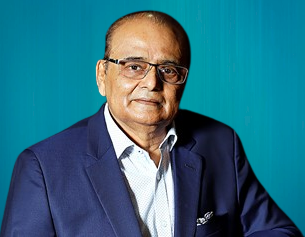Dr. Sattar is the Chairman and Chief Executive of Policy Research Institute of Bangladesh (PRI) since its founding in 2009. PRI is a leading think tank in Bangladesh. Dr. Sattar began his career in 1969 as member of the elite Civil Service of Pakistan (CSP), and later worked in the Districts and Secretariat for Bangladesh Government. He holds a Ph.D in Economics from Boston University and has taught Economics at Dhaka University, Catholic University of America, Boston University, and University of Massachusetts. A former civil servant turned trade economist, he served as World Bank Adviser on tariffs, customs and trade reform to the Bangladesh National Board of Revenue. During 1997-2007, as a Senior Economist of the World Bank he led the dialogue on trade and tariff policy reforms and was the team leader of the seminal World Bank report, South Asia Trade Policy Review (1999-2002). He was a leading member of the core team of experts that drafted Bangladesh Government’s 6th Five Year Plan (2011-15), 7th Five Year Plan (2016-20), 8th Five Year Plan (2021-25), and the two Perspective Plans, 2010-21, and 2021-41. With Climate Change and environmental issues taking center stage in the sustainable development discourse, direct integration of the green growth agenda at the national level was established for the first time in Bangladesh development planning by the PRI team in the Perspective Plan 2041 (PP2041), the Eighth Five Year Plan (8FYP), and the Bangladesh Delta Plan 2100. The PP2041 and the 8FYP have been critical in integrating green growth agenda at the national strategy level. Dr. Sattar, as Team Leader, recently completed two World Bank reports, Diagnostics for Country Climate Development Report (CCDR) and the Climate Change Institutional Assessment (CCIA).
Dr. Sattar is recognized as a leading expert on trade policy issues in Bangladesh. He frequently offers policy advice to the Government of Bangladesh on trade, industry, macroeconomic and development policy issues. He also lectures on campuses, makes keynote presentations in seminars and workshops, and regularly contributes insightful pieces in local journals and newspapers.






